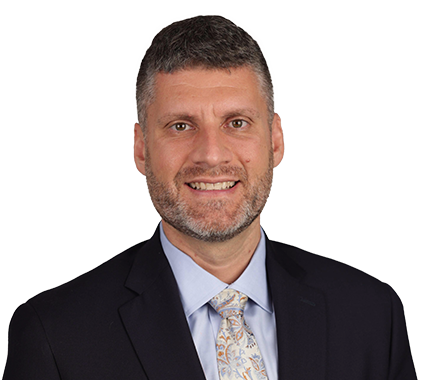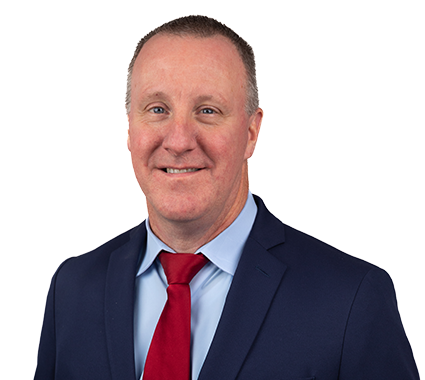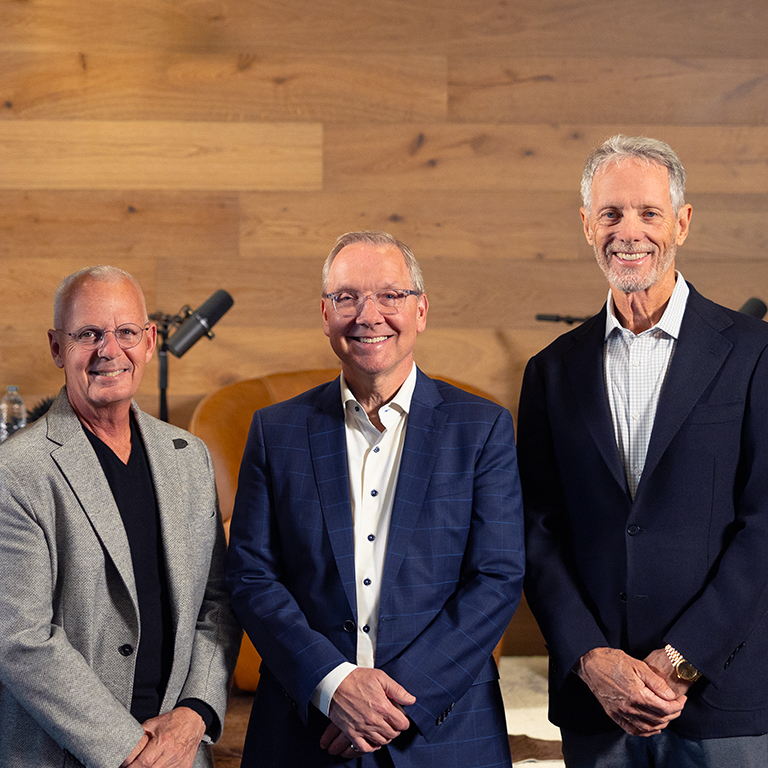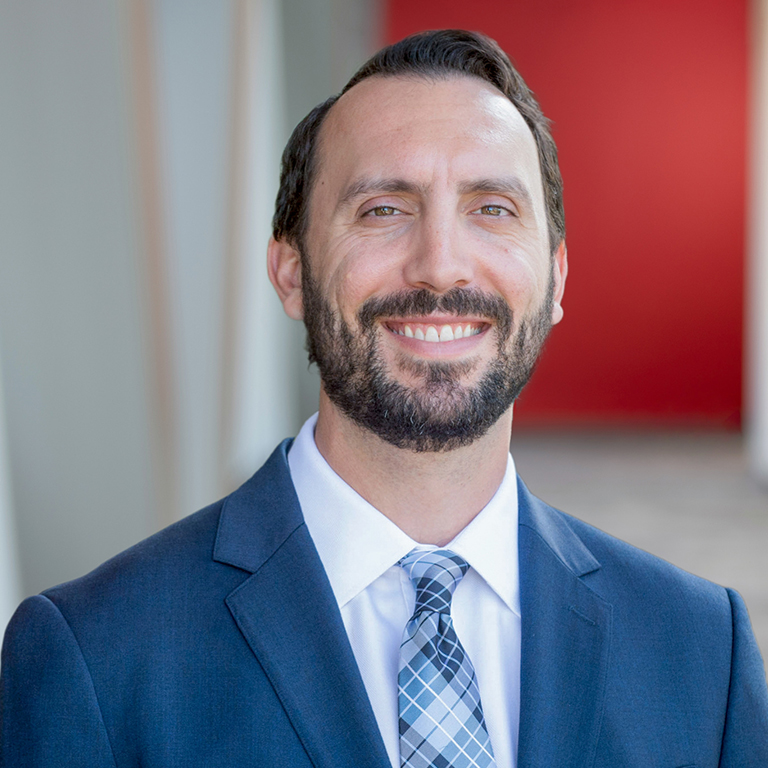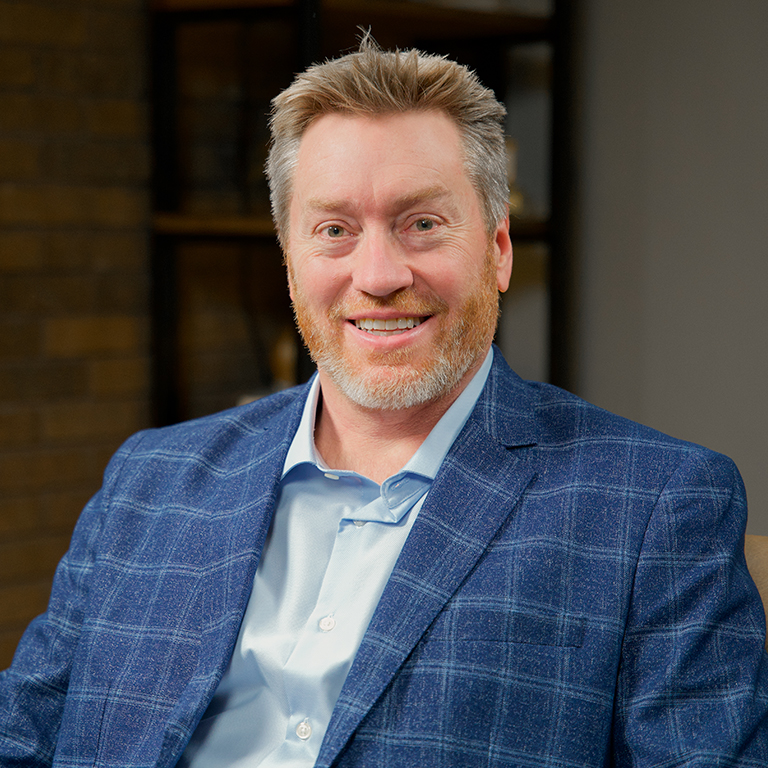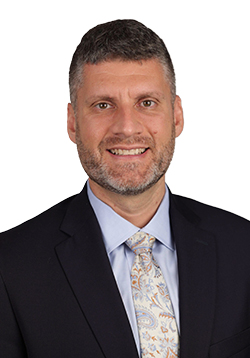
Money is the #1 stressor for 63% of Americans. But, what if it didn’t have to be?
On the latest episode of Common Cents on the Prairie™, I sat down with Dr. John Delony, a mental health expert, bestselling author, and Ramsey Solutions personality, to find out how owning your past financial trauma can help change your money destiny and reduce your stress for good.
You can read a recap of the conversation below, watch the full episode on YouTube, or listen on your favorite podcast app!
How to change your money destiny
Adam: Ramsey Solutions just released its State of Mental Health study revealing, “Personal finance and money take the lead as a stressor for 63% of the population.” Why do you think that is?
John: One reason, I think, is that if you look at all the vacations you do and don’t take, the degrees you did and didn’t get, and the jobs you do and don’t have, all that distills down into one question: what are you worth?
We’ve wrapped the answer to that question in a number. And I think the answer to the question “What are you worth?” is never a number.
So, I think you have this existential stress that I’m supposed to be worth: fill in the blank. Then, you have the reality that millions of Americans just can’t put the front or back ends of their month together, and that’s a recipe for stress and anxiety and all sorts of other relational disasters.
Adam: What does that stress do to us physically, mentally, and spiritually?
John: When you are with somebody in a relationship and you have money stress, chances are you’re going to handle that differently. And now you’re going to war with the one person who’s committed the rest of their life to being on your team, right?
And then you get into the spiritual mess, and that’s the existential crisis. What am I worth? Why am I here? What’s my value? I have no purpose. We just continue to buy into these existential lies. And I think monetary stress really piles up on us in all areas of wellness.
Here’s a story from my life. I remember that my dad told me he was going to pay for my prom tux when I was 17 or 18. It was like $70, but he brought in three credit cards and said, “Put $13 on this one. Put $36 on this one.”
I felt this guilt that an 18-year-old shouldn’t feel, and I know that he was embarrassed. I could see it in his body language and on his face and in the way he spoke. There was that tension and that shame and that money stress. If you don’t get that stuff knocked out, it will just burn everything down around you.
Adam: So, a theme that ran through your new book was the power of stories. Walk us through the four stories and how those direct our lives.
John: One of them is the stories we’re born into. And that’s just how your family does what your family does. These are the stories like, “We don’t buy houses like that; we live here because this is who we are.”
Then, you have the stories that you were told. And those can be stories like the teacher said, “You just aren’t a math kid.” Or that girl told you, “You’d be so cute if your teeth weren’t yellow.”
Then, there’s the stories of the things we’ve done. I didn’t fully understand at 19 that I was signing a 30-year loan document that was legally binding, and I could never discharge it in bankruptcy. And I can complain about that and be angry that I didn’t fully understand what I was doing, but I signed my name on that paper.
All of those stories, rightly or wrongly, turn into the fourth kind of story, which is the stories we tell ourselves. “Here’s what Christmas is supposed to look like” turns into, “This is the right way that I do Christmas. So, any other way I see Christmas done is wrong.”
Adam: How do we get to a place where we can change those stories?
John: First, you have to own where you are. So, I have to own my financial situation: here’s how much I owe someone else, or here’s how much I don’t have saved for retirement. Then, I’m going to move forward and connect with other people. There is zero, none, nada — there is no long-term behavior change without other people. You’ve got to have people in your corner.
And then, I’m going to change my thoughts and my actions. I’ve got to make choices to do things differently. I’ve got to seek out different pictures and models of what this might look like. That’s why someone like Dave [Ramsey] or like you is so great, because you provide a picture of another way to do this.

Adam: So, how do we bring other people into our lives?
John: The one thing that I have very little empathy for is people who try to do all of life all on their own. I’m talking about people who try to have every answer to every question and will never outsource any sort of support.
One of my core values is to “have a guy.” I am terrible with money. I know that. So, what do I do? I ask someone to walk alongside me. We have to stop ducking our heads at these hard conversations and just get after it and get well.
Adam: Something I’ve been really interested in is the impact of recent events not only on our mental health but also on our relationship with money. So, when it feels like things are spinning out of control, how should we approach those periods of uncertainty?
John: No amount of worrying on my part — no amount of anger and rage and punching the steering wheel — is going to bring down gas prices. Any sort of leaning into that rage is a choice to make myself die younger. Any choice to run my mouth and scan websites about interest rates or inflation when I’m not buying anything is a choice to be a less present dad. It’s a choice to be a grumpy husband. Why would I choose that?
I can do nothing about inflation. In a couple of years, I can vote. And I can look at my budget. My wife and I decided to stop buying bacon. Dude, I like to rub bacon on my face. I love it. But I looked at the budget, and I was like, “That’s not going to happen this week because gas is expensive.”
The only two things on planet Earth we can control — this is it, man — are our thoughts and our actions. That’s all. I can choose to be present with people. I can choose to work my butt off at the office. I can choose to stop complaining. I can choose to use the off button on my gadgets.
You can sit at home and stew and be scared, or, you know what you can do? You can go plant flowers. You can make sure that you’re putting beauty into the world. I can make those choices.
Are you ready to own your financial situation and need someone to walk alongside you? Send us a note; we’d be happy to be “your guy!”
